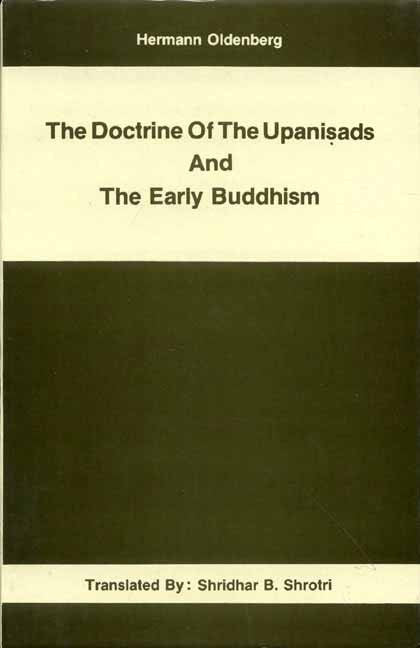The Doctrine Of The Upanisads And The Early Buddhism
![]() 100% Genuine New Books
100% Genuine New Books
![]() Fast Shipping with Tracking Number
Fast Shipping with Tracking Number
Secure Payments via UPI, Cards & Wallets
![]() Trusted Support & Easy Returns
Trusted Support & Easy Returns
The Doctrine Of The Upanisads And The Early Buddhism - Hardcover is backordered and will ship as soon as it is back in stock.
ISBN : 9788120808300, 8120808304
Year of Publication : 1997
Edition : 1st
No. of Pages : 226
Language : English
Condition : New
Publisher: Motilal Banarsidass Publishing House
Free shipping on orders over Rs. 249
Free shipping on orders over Rs. 249
We offer free shipping on orders above Rs. 249 in India. For orders below this threshold, a nominal shipping fee may apply, which will be clearly indicated during the checkout process.
How long will it take to receive my order?
How long will it take to receive my order?
The delivery time varies depending on your location. Generally, orders are processed and shipped within 1-3 business days. Once shipped, you can track and expect your order to arrive within 3-7 business days (the duration may vary depending on your location). For more information, please refer to our shipping policy.
Chat with a Real Person
Chat with a Real Person
WhatsApp chat is dedicated to assisting with after-sales queries regarding delivery, returns, and payments. Click below to initiate chat with us on WhatsApp:
[Bookstaa WhatsApp Chat].
For all other inquiries, please visit our customer support page or email us at support@bookstaa.com.
Couldn't load pickup availability
Description
Description
Chapter I of this study, which discusses the older Upanisads, viz., the Brhad Aranyaka Upanisad and the Chandogya Upanisad, describes at the outset how the idea of the Supreme Being, the unique mystic power, was conceived in the words Brahman and Atman and how these two entities merged with each other and became identical. It then discusses the doctrine of metempsychosis as evolved from the relation between the Supreme Being and the world of plurality. In this period, the magician-priest begins to become a philosopher.
Chapter II deals with later Upanisads like Kathaka Upanisad, Maitrayana Upanisad and Svetasvatara Upanisad. This period clearly reveals beginnings of the formulation of a system in the form of Samkhya Doctrine and the
Yoga. Here the ultimate goal of human yearning, the salvation from suffering, becomes visible. In short, we perceive the development of thought of the Indian Philosophy from an impersonal god (of impersonal
powers) to a personal god.
But interestingly, a system strongly enforcing the elements of Yoga decisively rejected theism and adhered to the pessimistic thought of Indian mysticism: the Doctrine of Buddhism. This is described in Chapter III.
About the Publisher

Motilal Banarsidass Publishing House (MLBD)
Motilal Banarsidass Publishing House, popularly known as MLBD, is one of the oldest and most prestigious publishing houses in India, established in 1903.
With over a century of legacy, MLBD has been at the forefront of publishing scholarly works in the fields of Indology, Sanskrit, philosophy, religion, spirituality, yoga, Buddhism, and Jainism.
Renowned for its authenticity and academic rigour, MLBD's books are trusted by researchers, scholars, and readers across the globe.
With more than 5,000 titles in circulation, MLBD continues to uphold its commitment to preserving and promoting India’s rich cultural and philosophical heritage.
Bookstaa is an authorized distributor of MLBD books, ensuring 100% genuine and original publications for our readers.

